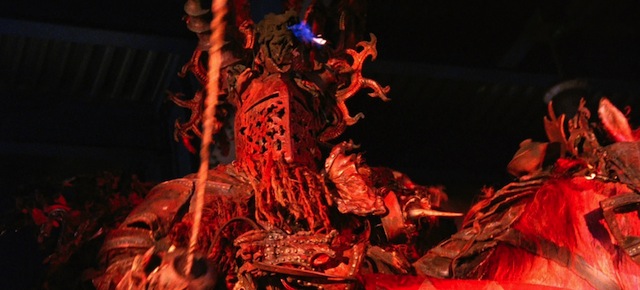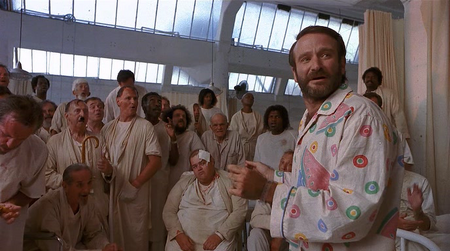

One final post before we give the depression talk a rest, and only because the source material is so remarkable. I’m referring to Andrew Solomon’s reflection on you know who for The New Yorker, which appeared late last week. With trademark compassion, he put his finger on a big part of what makes Robin Williams’ death so shocking:
When the mass media report suicide stories, they almost always provide a “reason,” which seems to bring logic to the illogic of self-termination. Such rationalization is particularly common when it comes to the suicides of celebrities, because the idea that someone could be miserable despite great worldly success seems so unreasonable. Why would a person with so much of what the rest of us want choose to end his life? Since there are always things going awry in every life at every moment, the explanation industry usually tells us that the person had a disastrous marriage, or was a hopeless addict, or had just experienced a major career disaster, or was under the influence of a cult. But Robin Williams does not seem to have had any of these problems. Yes, he fought addiction, but he had been largely sober for quite a while. He was on his third marriage, but it appeared to be a happy one, and he seems to have been close to his children. His newest TV series was cancelled a few months ago, but his reputation as one of the great performers of our time remained untarnished. So he would have had little “reason” to commit suicide—as, indeed, most people who kill themselves have little “reason” other than depression (unipolar or bipolar), which is at the base of most suicide…
It’s not hard to see why we seem so determined to find a Why in the wake of such a tragedy. If we can find something ‘out there’ to blame, some circumstance or context that triggered the condition, then perhaps there’s something we can theoretically fix. Our emotional pain remains manageable, under control somehow–even if all evidence points in the opposite direction, to depression being immune to such attempts. In fact, “emotional pain without context” is one of the more useful (and terrifying) definitions I’ve heard for Churchill’s ‘black dog’.

Solomon thankfully develops his line of thinking further. To him, the news reveals more than the often intractable nature of depression; it reveals the intractability of the human condition itself. In terms of Williams’ roles, it could be that we share more in common with Parry from The Fisher King than Sean Maguire of Good Will Hunting:
The same qualities that drive a person to brilliance may drive that person to suicide. Highly successful people tend to be perfectionistic, constantly striving to meet impossible standards. And celebrities tend to be hungry for love, for the adoration of audiences. No perfectionist has ever met his own benchmarks, and no one so famished for admiration has ever received enough of it…
If you could be Robin Williams and still want to kill yourself, then all of us are prone to the same terrifying vulnerability. Most people imagine that resolving particular problems will make them happy. If only one had more money, or love, or success, then life would feel manageable. It can be devastating to realize the falseness of such tempered optimism. A great hope gets crushed every time someone reminds us that happiness can be neither assumed nor earned; that we are all prisoners of our own flawed brains; that the ultimate aloneness in each of us is, finally, inviolable.
Robin Williams’ death, in other words, forces us to confront something we would all much rather avoid: that the countless little ladders we spend our lives climbing–religiously, socially, career-wise, etc–may not actually lead where they promise. That ‘works’ are not just a spiritual dead-end but an emotional one as well. That if anything (or anyone) is going to violate our aloneness and bring us into that glorious psych-ward singalong in the sky, well, you probably know where I’m going. Just in case, though, here’s how it came out in yesterday’s sermon:
https://www.youtube.com/watch?v=qfunRtzlEjA&w=600

COMMENTS
Leave a Reply












